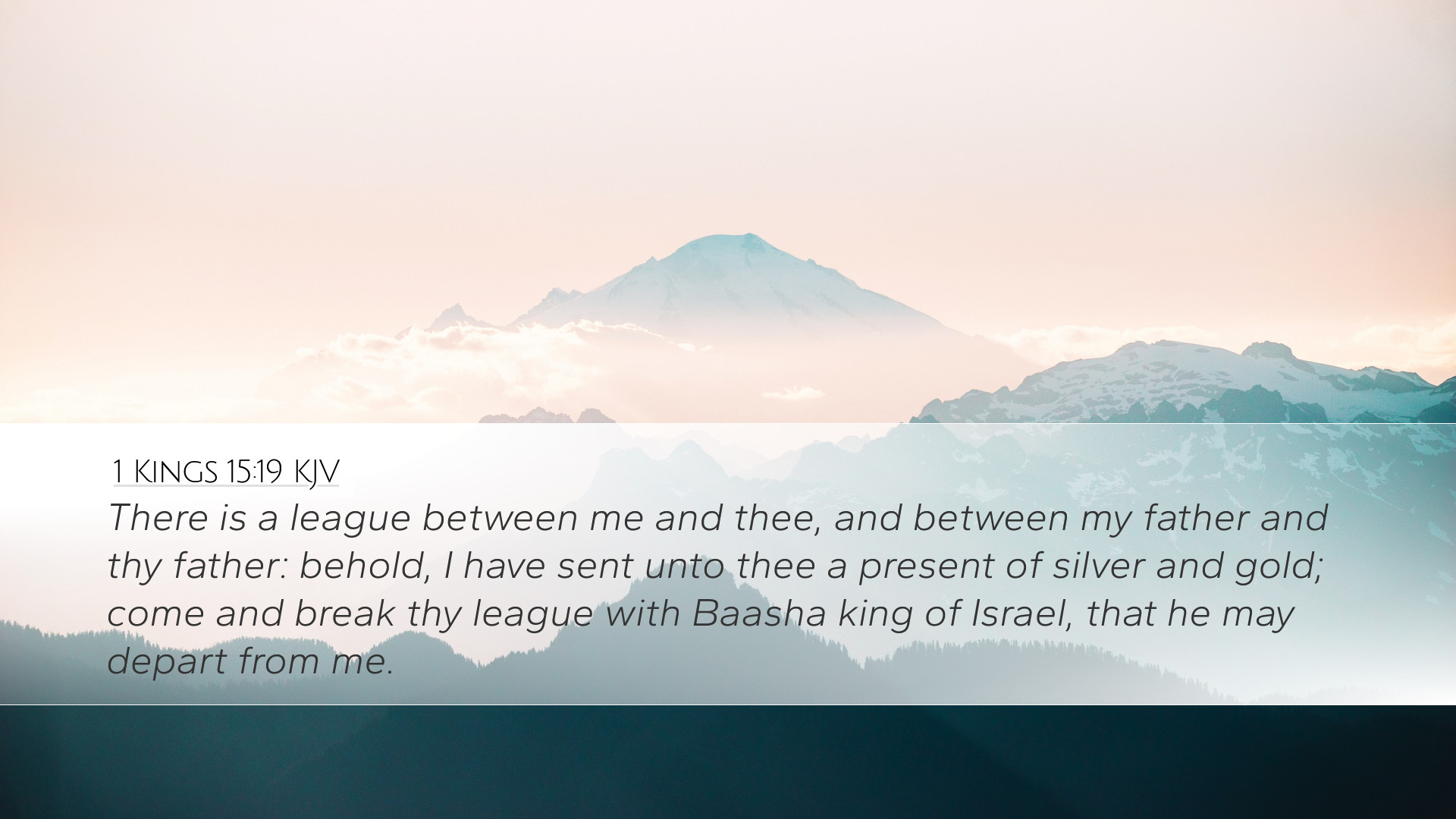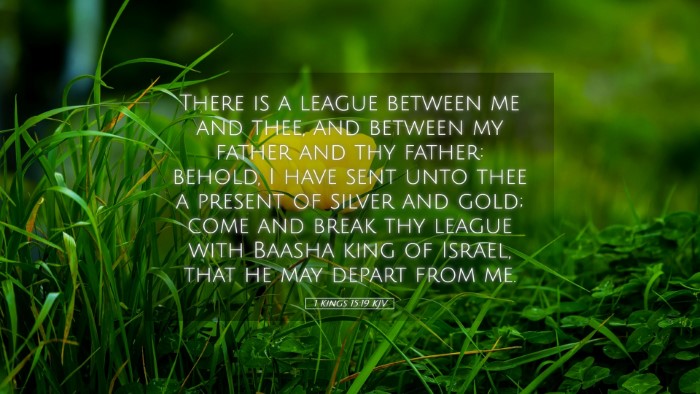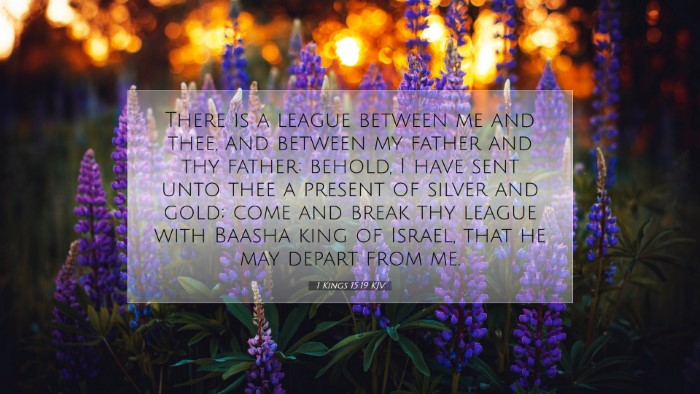Commentary on 1 Kings 15:19
Verse Text: "Send me now a message by the hand of your servant, and let me go up to you." (1 Kings 15:19, ESV)
Introduction
This verse appears within the larger narrative of political alliances and conflicts during the reigns of the kings of Israel and Judah. The context of the message from King Asa to Ben-Hadad, king of Aram, is significant as it reflects the intricate dynamics of power, reliance on allies, and the spiritual implications of seeking assistance outside of God.
Historical Context
The historical setting of 1 Kings 15:19 is marked by the ongoing hostilities between the northern kingdom of Israel and the southern kingdom of Judah. Asa, the king of Judah, is characterized by his attempts to reform the nation and his reliance on the Lord. However, in this instance, he seeks assistance from an outside power, which opens a discussion about faith and reliance on God versus human strategy.
Commentary Insights
Matthew Henry's Commentary
Matthew Henry emphasizes the folly of Asa's actions in seeking help from Ben-Hadad rather than relying solely on the Almighty God. Henry argues that Asa had previously experienced God's deliverance and should have remembered the importance of faith in divine providence. He notes that this action demonstrates a moment of weakness in Asa's reign, indicating that even faithful leaders can falter in their trust.
Albert Barnes' Commentary
Albert Barnes offers a deeper analysis of the political ramifications of Asa's move. He points out that Asa's alliance with Ben-Hadad illustrates the complexities of royal diplomacy in ancient Israel. Barnes posits that while Asa may have acted out of a desire for security, this dependence on foreign alliances can undermine one's trust in God. He highlights the contrast between Asa’s earlier reliance on divine power and his current political maneuvering.
Adam Clarke's Commentary
Adam Clarke provides insights into the implications of seeking human solutions for spiritual problems. He explains that Asa's request for help reflects the broader human tendency to resort to worldly means in crises. Clarke notes that this moment could signify a lack of trust in God, urging leaders to remember the past victories delivered by divine intervention. This underscores the importance of steadfast faith and the danger of deviating from reliance on God's strength.
Theological Implications
The verse conveys profound theological lessons concerning faith, governance, and the human condition. It raises questions about the nature of trust and the desire for security through alliances versus reliance on God's power. The following key themes emerge:
- Faith vs. Strategy: Leaders are often faced with choices that challenge their faith in God. Asa’s reliance on Ben-Hadad can be seen as a momentary lapse, illustrating the struggle between human reasoning and divine reliance.
- The Cost of Compromise: Seeking external help can lead to compromises in faith and ethics. This act by Asa signifies the beginning of a series of political decisions made without the counsel of God.
- Lessons in Leadership: The narrative holds valuable lessons for pastors and leaders today about the importance of unwavering faith in God amidst challenges, and the need for discerning spiritual guidance in moments of crisis.
Practical Applications
In light of 1 Kings 15:19, contemporary believers and leaders can draw several practical applications:
- Relying on God: Leaders should always seek God’s guidance before making critical decisions, especially in times of trouble. Prayer and divine counsel should precede human effort.
- Faithfulness in Crisis: Just as Asa struggled with reliance on God, believers today are encouraged to remain faithful and not to resort to secular strategies that may lead them away from God’s will.
- Encouragement for the Weary: For pastors and theological scholars, this verse serves as a reminder that all leaders face moments of doubt and the importance of encouraging one another to seek God above all else.
Conclusion
1 Kings 15:19 is a poignant reminder of the delicate balance between faith and human action. The reflections from notable commentators like Matthew Henry, Albert Barnes, and Adam Clarke reveal the potential pitfalls of straying from God's guidance. As we learn from King Asa's moment of weakness, may all leaders strive to keep their faith steadfast and prioritize divine direction over worldly solutions.


